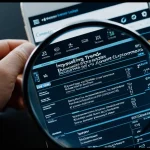Emerging Trends Shaping UK Business Services
The landscape of UK business services is undergoing significant change driven by several key industry trends. Among the most influential is digital transformation, which has accelerated as companies increasingly integrate advanced technologies like artificial intelligence, cloud computing, and automation into their operations. This shift is not merely technological but strategic, enabling businesses to enhance efficiency, improve customer experiences, and adapt swiftly to evolving market demands.
Another critical trend is sustainability, which is becoming a central consideration for UK business services. Organizations are responding to regulatory pressures and growing consumer awareness by embedding environmental and social governance (ESG) principles into their operations. Sustainability initiatives help businesses reduce their carbon footprint while fostering long-term resilience and appealing to ethically conscious clients.
Have you seen this : How Can UK Businesses Optimize Their Service Offerings for Future Growth?
The rise of remote work continues to reshape how UK business services deliver value. Flexibility in workforce management and the adoption of digital collaboration tools have become essential for maintaining productivity and employee satisfaction. Companies that prioritize remote work capabilities position themselves competitively by attracting diverse talent and maintaining business continuity during disruptions.
Adapting to these market disruptions is vital. Businesses that proactively embrace innovation and continually refine their strategies can navigate the fast-changing environment more successfully. This includes investing in technology, upskilling their workforce, and adopting agile practices that support rapid decision-making and operational resilience.
Also read : How Can UK Businesses Enhance Their Services to Meet Future Challenges?
In summary, UK business services that align with digital transformation, commit to sustainability, and effectively manage the transition to remote work are poised to thrive. These trends are not isolated but interlinked drivers of a dynamic industry landscape, making it imperative for companies to stay ahead through strategic innovation and flexibility.
Digital Transformation and Technology Adoption
Digital transformation has become a cornerstone of modern business strategy, prominently featuring automation, artificial intelligence (AI), and advanced technology adoption. These elements streamline service delivery and enhance operational efficiency across various sectors.
Automation and AI integration significantly improve service accuracy and speed. For instance, businesses employ AI-driven chatbots and automated workflows to reduce human error and increase responsiveness. This not only optimizes customer interaction but also frees up human resources for complex tasks.
The adoption of cloud computing coupled with data analytics empowers companies to manage vast amounts of information efficiently. Cloud platforms enable real-time data processing, scalability, and easier collaboration, while analytics help interpret data trends to inform decision-making. This combination enhances agility and competitive advantage.
In the UK, numerous businesses have embraced digital transformation with notable success. Retailers, financial institutions, and healthcare providers showcase how technology adoption fosters innovation, cost reduction, and improved customer experience. These examples underscore the critical role that digital transformation and automation play in driving growth and resilience in today’s dynamic market environments.
Sustainability and Environmental Responsibility
Understanding the growing importance of sustainability in today’s market is crucial for businesses aiming to remain competitive and ethically responsible. Many companies now focus on integrating green business services into their operations to reduce environmental footprints and meet the increasing demands for eco-friendly practices.
One key driver behind this shift is the expansion of ESG (Environmental, Social, and Governance) regulations. These standards encourage transparent reporting and sustainable strategies, compelling businesses to reevaluate and adjust their processes. For example, adopting energy-efficient technologies and minimizing waste are direct responses to ESG requirements, highlighting how these regulations influence decision-making at various organizational levels.
In practical terms, companies implement several changes to uphold their commitment to environmental responsibility. These include optimizing supply chain logistics to reduce carbon emissions, prioritizing renewable resources, and encouraging remote or hybrid work to lower office energy consumption. By embedding these measures, businesses contribute meaningfully to sustainability goals while often benefiting from cost savings and enhanced reputations.
Ultimately, fostering environmental responsibility through thoughtful green business services and adherence to ESG principles is not only a regulatory necessity but also an opportunity to drive innovation and long-term value.
Evolving Workforce and Remote Work Models
The modern workforce is undergoing rapid transformation with the rise of remote work and hybrid models reshaping traditional office dynamics. These flexible working arrangements have become essential for many organizations aiming to enhance productivity and employee satisfaction. Implementing such models requires careful planning to address infrastructural needs, communication protocols, and performance measurement.
A key aspect of workforce adaptation involves equipping employees with the skills and tools necessary for successful remote collaboration. This includes training programs focused on digital competencies, cybersecurity awareness, and effective virtual communication. Providing ongoing support ensures employees can navigate the complexities of working outside a conventional office setting.
However, transitioning to flexible working environments presents notable challenges. Maintaining team cohesion, preventing burnout, and managing distractions require thoughtful strategies. Conversely, these models offer opportunities to attract diverse talent, reduce commuting stress, and foster a culture of autonomy. Organizations that actively embrace and refine hybrid models position themselves to thrive in a rapidly evolving labor landscape.
Regulatory Changes and Compliance Demands
Navigating regulatory compliance is increasingly complex for businesses operating under evolving industry regulations. Policy changes, especially in the UK business law landscape, directly impact how companies design their service models to remain compliant and competitive. Adapting to these changes is not merely a legal necessity but also a strategic imperative.
Data protection and privacy laws, particularly updates to GDPR (General Data Protection Regulation), have heightened the need for rigorous compliance controls. These regulations mandate stringent procedures for handling personal information, emphasizing transparency and consent. Failure to align with such policies can lead to significant penalties and damage to reputation.
To stay ahead of regulatory developments, businesses must implement ongoing monitoring systems and invest in staff training to understand new policy changes promptly. Leveraging technology for compliance tracking and adopting flexible operational frameworks can mitigate risks associated with sudden legislative shifts. Proactive engagement with regulatory bodies and legal experts also helps anticipate future trends in UK business law, enabling organizations to adapt their service models effectively.
Innovative Service Models and Client Engagement
Innovative service models prioritize service innovation to craft bespoke offerings tailored to diverse client needs. By focusing on personalised services, organizations can elevate the customer experience, ensuring that each interaction resonates uniquely with the client. Such tailored approaches are central to building strong client engagement, fostering loyalty, and driving satisfaction.
Technology plays a pivotal role in enhancing this engagement. Leveraging advanced tools and platforms enables service providers to collect real-time feedback, track preferences, and adapt offerings accordingly. This responsiveness directly boosts the customer experience by making services more intuitive and client-centric.
Moreover, cross-sector collaboration enhances value creation by merging expertise and resources from different industries. Partnerships foster innovative solutions that can address complex client challenges more holistically. This strategy not only enriches service innovation but also strengthens client engagement through diversified and flexible service portfolios. By integrating these elements—personalization, technology, and collaboration—organizations can redefine service delivery and set new standards in client relations.

